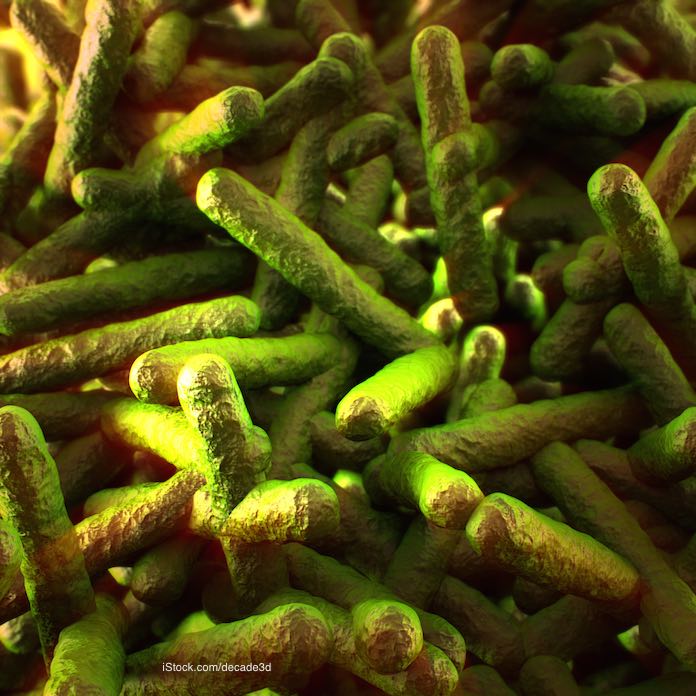In some Listeria monocytogenes food poisoning outbreaks, we tell you that infants contracted this infection. In the current listeriosis outbreak linked to recalled Vulto Creamery raw milk cheese, one of the illnesses was reported in a newborn baby. Since babies do not consume raw cow’s milk or eat raw cheeses or unpasteurized juices, the most common vectors for this pathogenic bacteria, how do they get sick?

Short answer: their mother was sick. When a woman eats food contaminated with this pathogenic bacteria, she can pass the infection to the fetus. And if the fetus survives, since listeriosis can cause miscarriage and stillbirth, they can be born with this infection.
In the Bidart Brothers’ caramel apple Listeria monocytogenes outbreak, 35 illnesses occurred in pregnant women. One of the expectant mothers passed the bacteria to the fetus. Her baby was born with a serious infection and needed a month of treatment in the neonatal intensive care unit.
There are two mechanisms for fetal infection: early onset and late onset. In early onset, the bacteria gets into the placenta, most likely by the woman’s immune system coming into play. It grows rapidly there and can cause miscarriage. In late onset, full term babies who are otherwise healthy are affected. These infants usually develop meningitis. In addition, listeriosis can slow the fetal heart rate, often for extended periods of time.
Listeria infections are 20 times more common in pregnant women than in the general population. And pregnant women account for 27% of all listeriosis patients. That’s why obstetricians tell their patients to avoid soft cheese, deli meats, raw milk products, smoked seafood, and unpasteurized juices, foods that carry a higher risk of Listeria contamination.
In addition, some pregnant women don’t even know they are sick. They may only have a mild, flu-like illness, or think that their symptoms are related to pregnancy. Listeria bacteria hide in host cells and may not disrupt the digestive system, unlike bacteria such as E. coli and Salmonella. The bacteria can then cross the placental barrier and affect the fetus.
Listeriosis in fetuses and infants is serious and often fatal. This infection can cause pneumonia, sepsis, or meningitis (inflammation of the brain and spinal cord).
If you are pregnant, it’s important to keep informed about recalls of foods for Listeria monocytogenes. If you ate any products recalled for that reason, tell your obstetrician. She may put you on a prophylactic regimen of antibiotics to prevent the serious complications that can arise from this infection. And avoid foods that are more likely to be contamianted with this pathogenic bacteria.
Pritzker Hageman law firm helps people sickened with Listeria monocytogenes in contaminated food get answers, compensation and justice. They represent clients in personal injury and wrongful death lawsuits against food processors, restaurants, retailers and others.




